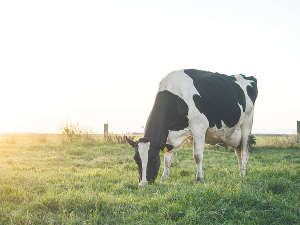Mineral Balance: The hidden key to dairy goat health & production
Most dairy goat farmers focus on getting energy, protein, and fibre right, and fair enough – feed drives milk.
 Investing in pasture and feed analysis is the most accurate way to ascertain mineral and trace element levels in your herd’s diet.
Investing in pasture and feed analysis is the most accurate way to ascertain mineral and trace element levels in your herd’s diet.
Spring brings heavy demands for our dairy cows, with calving, peak milk, and successful mating all crucial milestones for a profitable season, and all in a climate that is becoming increasingly volatile each year.
In an ideal world, our dairy herds would have access to ample amounts of high-quality pasture containing sufficient nutrients, vitamins, and minerals to drive optimum performance. However, reality is far from ideal and we need to be aware of potential mineral deficiencies presented by our pasture-based system.
Low levels of trace elements in pasture
Trace elements are commonly found to be deficient in grazing dairy cows.
Also called micro minerals, these are copper, cobalt, selenium, iodine and zinc, and all work together to play a crucial role in cow health and performance.
Low copper absorption in cows, combined with low copper content in pasture easily results in deficiency. Copper is key for proper immune development and deficiency can mean cows are more susceptible to infection.
Cobalt is required for the synthesis of vitamin B12, which is essential for energy metabolism, fibre digestion, and immunity. With our soils generally high in manganese, cobalt uptake by the plant is restricted, resulting in inadequate cobalt levels.
Selenium is vital for immunity, milk production, reproduction, and calf viability. In general, pasture tends to be low in selenium and fertilisers do not sufficiently correct this.
Iodine is essential for energy metabolism, milk production, and reproduction. Not only is pasture uptake of iodine usually low, it is also easily leached in wet spring weather.
Zinc levels are commonly low in pasture, but this trace element is required for production, reproduction, animal growth, long-term hoof health, and immunity.
Efficient mineral dosing
While dusting and water dosing is common, we know that mineral supplementation through feed systems is the most effective way of getting minerals into your cows, whether through an inline feed dispenser or mixer wagon.
It’s important to note that not one single feed provides the perfect balance of macro and micro minerals, of which adequate levels are vital for optimum production, successful mating, and pregnancy maintenance. Investing in pasture and feed analysis is the most accurate way to ascertain mineral and trace element levels in your herd’s diet, resulting in an effective mineral supplementation plan this season.
Chris Balemi is managing director of Agvance Nutrition
Horticulture New Zealand (HortNZ) says a new report projects strong export growth for New Zealand's horticulture sector highlights the industry's increasing contribution to the national economy.
Fonterra shareholders say they will be keeping an eye on their co-operative's performance after the sale of its consumer businesses.
T&G Global says its 2025 New Zealand apple season has delivered higher returns for growers, reflecting strong global consumer demand and pricing across its Envy and Jazz apple brands.
New Zealand's primary sector is set to reach a record $62 billion in food and fibre exports next year.
A new levying body, currently with the working title of NZWool, has been proposed to secure the future of New Zealand's strong wool sector.
The most talked about, economically transformational pieces of legislation in a generation have finally begun their journey into the statute books.
President Donald Trump’s decision to impose tariffs on imports into the US is doing good things for global trade, according…
Seen a giant cheese roll rolling along Southland’s roads?